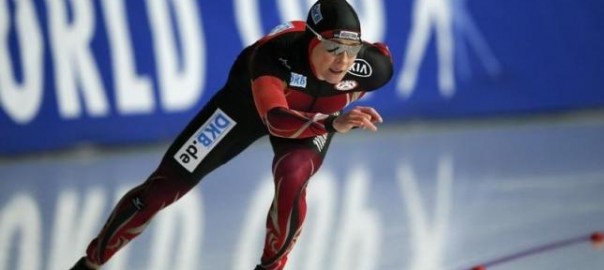1 INTRODUCTION
1.1 The benefits of arbitration (as opposed to the Court system) in resolving sporting disputes have long been recognised by those concerned with the regulation and governance of sport. The specialised expertise of sports arbitrators, the speed, confidentiality and relative cost efficiency with which arbitral panels can deliver decisions are all attractive in an industry that requires disputes to be decided quickly and at short notice . Unsurprisingly, the overwhelming majority of sport governing bodies therefore include an agreement to arbitrate sporting disputes in their Rules as a pre-condition to participation in the sport.
1.2 Since its inception, three years after the then IOC President Juan Antonio Samaranch proposed the creation of a “supreme court of world sport”, the Court of Arbitration for Sport (CAS), has gained the trust of most sports as an independent and consistent forum for the resolution of disputes. Unsurprisingly, most sports have now adopted the CAS as the final appellate forum (save in limited circumstances) once the sports’ own internal dispute resolution procedures have been exhausted.
1.3 Against that backdrop, the ongoing proceedings concerning Ms Paula Pechstein’s dispute with the International Skating Union (ISU) in connection with the two year ban from competition imposed by the ISU Disciplinary Commission (ISUDC) in 2009 for doping offences are relevant not just to the immediate issue of CAS’ jurisdiction, but also to the wider issue of how disputes are best resolved in the modern sporting context.
2 THE PECHSTEIN PROCEEDINGS
2.1 The story began in February 2009 when blood samples were taken from Ms. Pechstein as part of the ISU’s blood testing programme on the eve of the ISU World Allround Speed Skating Championships in Hamar. These samples were compared with Ms. Pechstein’s apparent blood profile based on information that the ISU had gathered over a number of years from blood samples taken from her as part of its anti-doping programme. That comparison gave rise to suspicious findings because of an abnormal increase in reticulocytes (immature red blood cells) which were potentially indicative of blood doping.
2.2 On 5 March 2009, the ISU filed a complaint with the ISUDC accusing Ms. Pechstein of blood doping offences. Following a hearing in Berne, the ISUDC found Ms. Pechstein guilty of an ‘Anti-Doping Violation’ and disqualified her from competing for two years. Notably, this was in spite of the fact that no Prohibited Substances had ever been identified in any of Ms. Pechstein’s samples. Her case was therefore determined on circumstantial rather than any actual evidence of doping.
2.3 Ms. Pechstein subsequently appealed to the CAS pursuant to Article 24 and Article 25 of the ISU Constitution and Rule 13.2.1 and 13.6 of the ISU Anti-Doping Rules. The Final Arbitral Award was published on 25 November 2009, dismissing Ms. Pechstein’s appeal on the grounds that “illicit manipulation of her own blood” remained the “only reasonable alternative source of such abnormal values”.
2.4 Many challenges to doping bans end at that point with the CAS typically being seen, as Mr. Samaranch had originally envisaged, as the ultimate arbiter of sporting disputes. However, Ms. Pechstein went further and appealed to the Swiss Federal Tribunal on a number of grounds. On 10 February 2010, applying the test contained within Article 190(2)(a)-(e) of the Swiss Private International Law Act strictly, the Swiss Federal Tribunal dismissed the appeal.
2.5 There was then a second appeal to the Swiss Federal Tribunal in which Ms. Pechstein argued that a novel scientific method of diagnosing hereditary spherocytosis (which could explain the blood test abnormalities) had been developed that was not available to the CAS at the time of the underlying arbitration. The Swiss Federal Tribunal again rejected Ms. Pechstein’s appeal.
2.6 Dissatisfied with the CAS and Swiss Federal Tribunal’s decisions, Ms. Pechstein issued a damages claim for €4 million in her local German Regional Court in Munich (Landesgericht), alongside a complaint to the European Court of Human Rights .
2.7 On 26 February 2014, the Landesgericht held both that it was seized of jurisdiction and that the arbitration agreement between the ISU and Ms. Pechstein was invalid, as Ms. Pechstein was forced to sign the agreement to arbitrate as a precondition of participating in her sport. The Landesgericht considered this a breach of Article 6 of the European Convention on Human Rights. However, despite this finding, it held that the principle of res judicata meant that the CAS Final Arbitral Award was enforceable pursuant to the New York Convention on the Recognition and Enforcement of Arbitral Awards. The CAS award and the sanctions imposed on Ms. Pechstein, therefore, stood, despite the fact that the basis for it was, in the Landesgericht’s eyes, illegitimate.
2.8 Having now gained some traction in her efforts to prove her innocence and challenge the sanctions imposed on her, Ms. Pechstein appealed to the Higher Regional Court of Munich (Oberlandesgericht). On 15 January 2015 , overturning the decision of the Landesgericht, it held that:
(a) The arbitration agreement between Ms. Pechstein and the ISU was invalid as it was contrary to mandatory German anti-trust law . Namely, the ISU’s insistence upon the agreement to arbitrate as a precondition of competing constituted an abuse of a dominant position. This was on the basis that the constitution of the International Council for Arbitration in Sport (ICAS) that selected the closed list of arbitrators and also appointed the President of the Appeals Arbitration Division, who in turn was responsible for appointing the chair for each CAS panel, was contrary to German anti-trust law. ICAS comprises 20 members, of which 12 were nominated by the International Olympic Committee, and only 1/5 were nominated with the athletes’ interests in mind;
(b) Accordingly, the CAS decision (which was mandated by the invalid arbitration agreement) was unlawful; and
(c) The Landesgericht was wrong to find that the principles of res judicata and the New York Convention meant that the decision of the CAS was valid. The Oberlandesgericht considered that the breach of anti-trust law was contrary to public policy , and pursuant to the exclusion contained within Article V(2)(b) of the New York Convention, the CAS decision was not binding.
2.9 To bring matters up-to-date, the current picture is that the ISU announced on 9 July 2015 that it had filed an appeal against the Oberlandesgericht’s decision to the German Federal Court of Justice (Bundesgerichtshof). On 14 July 2015, FIFPro, the football players’ federation, announced that it will financially support Ms. Pechstein in the defence of the ISU’s appeal, which is now pending.
3 ANALYSIS
3.1 One of the most striking aspects of the German Court’s decisions to date has been their willingness to entertain a challenge to CAS’ jurisdiction in spite of Ms. Pechstein’s failure to raise her jurisdictional challenge at any point prior to issuing proceedings before the German Courts. There was nothing preventing Ms Pechstein from raising a fundamental challenge to her arbitration agreement with the ISU and CAS’ jurisdiction under it at the outset of her case. Ms. Pechstein did not do so; indeed, she willingly submitted to the jurisdiction of the CAS.
3.2 Given that under section 73 of the Arbitration Act of 1996, a jurisdictional challenge must be made as the first step before a participant takes any substantive steps in the arbitration, the position reached by the German Courts is, ostensibly, directly opposed to the position under English law.
3.3 Either way, if upheld, the German Court’s decision appears to open up the possibility of athletes ‘forum shopping’ for alternative dispute resolution mechanisms after receiving an unfavourable judgment . It remains to be seen whether the Bundesgerichtshof will address the point.
3.4 With the Bundesgerichtshof yet to opine on this and the other issues at stake, there may yet be more twists and turns in this saga. Whatever the ultimate outcome, it is impossible for CAS to ignore the challenges made and the various decisions of the German courts.
3.5 Whilst some commentators have played down the likely impact of the case, given the long standing jurisprudence of the CAS (and the Swiss Courts endorsement of its role), the significance of the German Court’s decisions is clearly on CAS’ radar, with it stating in a press release:
“If, like in the Pechstein/ISU case, arbitration agreements were to be considered as invalid by state courts, even when not challenged at any stage during the arbitration, then the basic principles of international arbitration would be compromised” .
3.6 It is easy to see that the Pechstein case could have wide ranging implications for sporting arbitration agreements. Specifically, regardless of the Bundesgerichtshof’s view of the merits of Ms. Pechstein’s case, if it upholds the Oberlandesgericht’s decision that it has the jurisdiction to interfere with CAS’ decision, then it both paves the way for courts in other jurisdictions to find similarly in respect of their national athletes, and opens the door to potential damages claims against CAS by athletes who have been on the receiving end of sanctions.
3.7 Furthermore, the fact that FIFPro (and other donors) have agreed to fund Ms. Pechstein’s defence of the ICU appeal suggests that there are a number of interested stakeholders in the sports industry waiting in the wings, hoping that her challenge to CAS’ jurisdiction will succeed.
3.8 The statement published by FIFPro on 14 July 2015 that…
“Every athlete as a citizen and worker has the right to a fair process and to be judged in an independent and impartial court. The decisions of the regional courts in Germany in Claudia Pechstein’s case have confirmed that this right was not duly granted by CAS at the time of her anti-doping case.”
“FIFPro is firmly of the view that also today CAS does not provide footballers and other athletes with a structure and process that is fair to the athletes”.
…sounds as a warning to CAS that Ms. Pechstein and the German Courts are not alone in their belief that the constitution of the arbitral panels (and in this case CAS) are weighted in favour of governing bodies to the disadvantage of individual athletes.
3.9 Admittedly, the CAS has not stood still since 2009, and there have been amendments to the constitution of the ICAS and individual CAS arbitral panels. It is only natural that modifications will be necessary to the structure and function of a body established over 30 years ago, and the authors believe that it is critical for the integrity of international sport to be able to call upon a dedicated and unified appellate body to deliver consistent decisions. Otherwise, the spectre of a possible divergence in the application of and respect for fundamental sporting principles throughout the world arises. Clearly, therefore, CAS’ attempts to address the concerns raised and reform itself are to be welcomed.
3.10 Like the majority of commentators, the authors therefore hope for a reformed CAS capable of serving the modern sporting context, not for its abolition. However, the sports industry does not speak with one voice on this issue, as reflected in FIFPro’s statement that:
“Even after CAS’ structural reform, the composition of ICAS, the appointment of arbitrators and chairmen do not provide athletes with equal representation of arbitrators and independence of the tribunal. Other concerns such as procedural cost and the application of Swiss law to conflicts between EU-based parties have been criticized before .”
3.11 Whilst the decision of the Bundesgerichtshof is eagerly awaited by those operating in the sports sector, it appears that the legal challenges to CAS’s right to act as ‘the supreme court of world sport’ are unlikely to subside even if the Bundesgerichtshof overturns the Oberlandesgericht.





